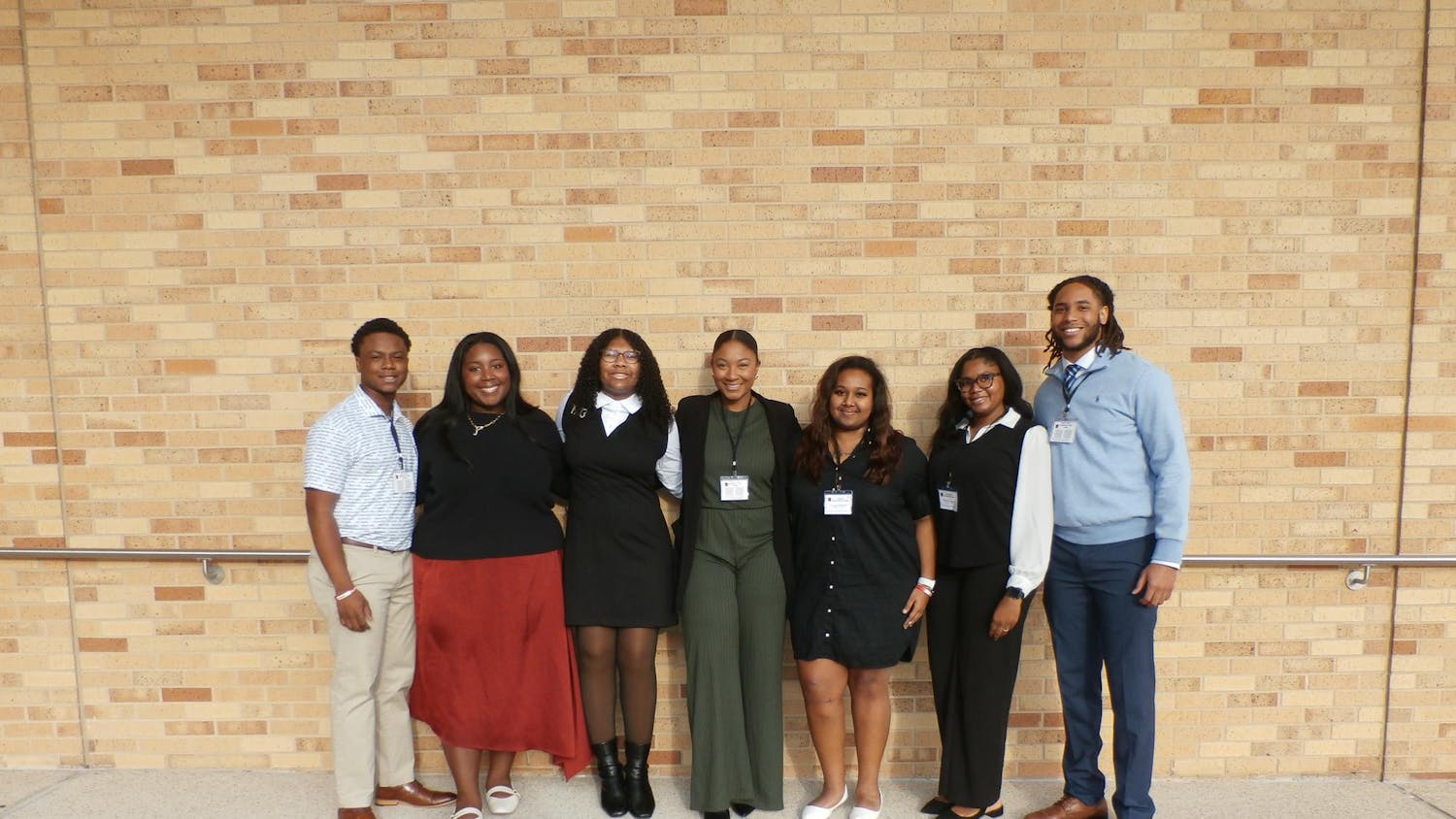According to the Centers for Disease Control and Prevention, one in every 59 children is diagnosed with autism spectrum disorder.
ASD is a developmental disability that can cause significant social, communication and behavioral challenges in children and adults, but only a small subset of children diagnosed receive training and services aimed to help them improve their skills in these areas.
One main reason that only a fraction are able to receive these services is due to the cost associated with them, even for a short six to eight week intervention program.
Even at Auburn's Center for Autism Research, Treatment and Training, these services can be costly, argues CARTT Director Corina Jimenez-Gomez.
“Our clients typically come ideally between 10 and 20 hours a week … and [for] 10 hours a week, it’s like $150 dollars a week,” Jimenez-Gomez said. “The 20 hours [a week] is like $220 a week.”
In order to keep prices as low as possible, price reductions are offered to families based on income, as well as other factors. But even with reductions, these intervention programs can exceed prices of $1,200 for an eight-week program.
The high prices for care and services are due to the very nature of ASD, according to Jimenez-Gomez. Each child with ASD is different and faces different challenges, and these differences necessitate individualized care for each child and family in order to ensure the most success.
While the financial barrier may be large, another reason that only some children with ASD are able to receive care and services is due to the low availability of the clinics themselves.
“Everybody has a long waiting list. There are services in Birmingham, there are services in other areas … but everybody has long waiting lists,” Jimenez-Gomez said. “For a parent of a 3-year-old, if you’re told, ‘These services are very important, you should do it ASAP,’ and then you’re told, ‘Well, you’re going to be on a waiting list for more than a year,’ what are you supposed to do?”
Extended waiting lists, while annoying, can also affect the impact of the early intervention care for children, argues Nadia Bhuiyan, clinic director for the Auburn University Psychological Services Center.
"Research indicates that the earlier a child with autism is involved in services, the better the short and long term outcome for that child across development," Bhuiyan said. "It is important for children with autism of all ages to get services, and the earlier the child gets started, the better for that child and family."
This care often comes when children are preparing to begin schooling, a place where the social and communicative skills that children learn will be put to the test, argues Jimenez-Gomez.
“We know that kids under the age of five respond really well [to the services],” Jimenez-Gomez said. “The idea is, 'Can we get these kids ready to be independent in a kindergarten setting?'”
The financial strain, coupled with the limited availability of clinics, creates a barrier for families of children with ASD — a barrier that can be partially brought down with money raised at Tiger Giving Day.
At CARTT, Jimenez-Gomez works with Bhuiyan and the AUPSC to provide services and training for children with autism and their caretakers. They realized that through Tiger Giving Day, the money they raised could be used to provide care to more children and families.
"Money generated through Tiger Giving Day affords the AUPSC and CARTT to offer free, high-quality services to families in need in our community," Bhuiyan said. "As finances are a big barrier for families, these generous donations through Tiger Giving Day will support families trying to access critical services early in development.
This past Tiger Giving Day, they raised $20,000, which will allow care to be provided to at least 10 children in the area who would not otherwise be able to afford these services.
These services are not just for the children, either. The short-term, 6-8 week intervention focuses both on the child and on the parents or caregivers, training them how to continue to provide care after the clinic’s services end.
“If the child has a tantrum, I want them to see how I would handle it, so that when they go to Target next week and I’m not there, they can figure it out,” Jimenez-Gomez said. "The best intervention is one that works in the natural environment.”
However, due to recent developments of the COVID-19 pandemic and the University's shutdown, Bhuiyan and Jimenez-Gomez have been unable to continue with their six to eight week interventions and were forced to close the clinic, according to Jimenez-Gomez.
Instead, she says CARTT is offering telehealth consultation for current clients, and some additional resources have been provided to families during this time. One such resource is a sample daily schedule with activities designed to help children and families during time spent in self-isolation, while continuing to work on social and communicative skills.
While children with ASD struggle with their communication, their wants and needs are the same as a child without ASD. Jimenez-Gomez and Bhuiyan work to help these children communicate in ways that can be understood by others, like their parents and their classmates.
“One of the basic tenets of what we do is that everybody does something for a reason," Jimenez-Gomez said. "A child that is engaging in a tantrum or that is throwing something [does so] because they need something or they want something. For you and I, if we’re upset or we want something, we have communicative and social ways of interacting with the world … a 4-year-old with autism does not have these skills.”
These children find other ways of communicating what they want or need, and usually, they find ways that are not socially acceptable, like tantrums or yelling. The key in the care that Jimenez-Gomez and Bhuiyan provide to these children is the reason behind their actions.
“There’s a reason your child is doing this; let's figure out why, and then after we know why, we can teach them a better way [to communicate],” Jimenez-Gomez said. “By teaching the child the skills that they lack, then we’re opening doors for them to do other things, [like] interact with the world more appropriately.”
These services given to children with ASD can be instrumental in helping them navigate and succeed in a world that is difficult to understand, and Jimenez-Gomez hopes to expand the services that CARTT provides in the future. For now, she’s more than happy doing what she loves.
“I do what I do because I like helping people, I like teaching people how to help people,” Jimenez-Gomez said. “I’m passionate about it, but it was just really nice to see so many people in the community support that vision.”
Do you like this story? The Plainsman doesn't accept money from tuition or student fees, and we don't charge a subscription fee. But you can donate to support The Plainsman.





